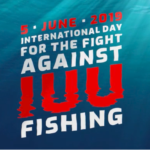
“Combating human trafficking is everybody’s business,” said Congressman Christopher Smith of New Jersey at the event that the Heritage Foundation recently organized, in partnership with the McCain Institute for International Leadership.
Indeed, there is no denying that human trafficking must be addressed and eliminated. It is not only a national problem; it’s a global one that requires countries to partner and stakeholders to cooperate. For the United States and its oldest ally in Asia, Thailand, fighting human trafficking is a shared concern that both can and should do more together.
The theme of the event focused on assessing the role of governments and non-governmental organizations in combating human trafficking. Underscoring her personal leadership on this issue, Mrs. Cindy McCain, Co-Chair of Arizona’s Human Trafficking Council, told the audience about the need for governments and NGOs to work together if the efforts are to be effective. She also highlighted the need for government commitments, not just words, to work and combat human trafficking. This, she noted, is what Thailand has done. Holly Burkhalter Vice President of the International Justice Mission (IJM), emphasizing the importance of prosecution, also mentioned her organization’s good work alongside law enforcement agencies in different parts of Asia, including India, the Philippines, Cambodia and Thailand.
Congressman Smith, the author of the Trafficking Victims Prevention Act (TVPA) of 2000, delivered inspiring keynote remarks before the event concluded. Significant progress has been made, the Congressman noted, since the enactment of the TVPA. He also urged the sharing of best practices among countries and organizations, saying the U.S. has learned some best practices in Thailand and vice versa, as he personally met with Thai delegations to discuss the issue almost every year, one of which played a role in inspiring him to work on and introduce the bill on International Megan’s Law, now awaiting the Senate’s consideration.
The present Thai Government has made fighting human trafficking its priority – a commitment that is being translated into action. It has also engaged stakeholders, including other governments, the private sector, NGOs and international organizations, in the efforts. During the latter half of February, the Ministry of Foreign Affairs – designated to lead partnership and awareness raising efforts on trafficking in persons issues – held consultations with private sector representatives and civil society organizations on how to further enhance partnership.
During the subsequent Q&A session, Ambassador Pisan pointed out that despite the fact that Thailand is a transition period politically, its present interim Government has put more efforts and resources into fighting trafficking than any previous governments. Progress has been made in raising awareness, amending and strengthening legislations, and enhancing protection for victims, among others. He underlined Thailand’s engagement with the Office to Monitor and Combat Trafficking in Persons (TIP Office), NGOs and others on this issue.
Last week, Thailand’s National Legislative Assembly passed in its first reading the bill to amend the Anti-Trafficking in Persons Act so as to strengthen penalties against traffickers, give additional powers to the authorities to suspend suspected businesses, provide greater protection for informants, and allow transfer of assets seized from traffickers to compensate victims and support the Anti-Trafficking in Persons Fund. Information on Thailand’s policy and actions is available at www.thaianti-humantraffickingaction.org.
Other questions raised by the audience included the role of the TIP Office, the challenge for NGOs working with local law enforcement agencies, engagement of the airline industry in the anti-human trafficking efforts, and surrogacy issue.
The event at Heritage Foundation, held on 3 March 2015, attracted a number of people who share concern about the scourge of human trafficking.




